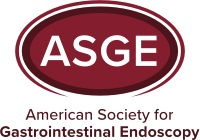The American Society for Gastrointestinal Endoscopy (ASGE) has released an important article in its signature publication, the Gastrointestinal Endoscopy (GIE) journal. The article, titled “Coronavirus (COVID-19) Outbreak: What the Department of Endoscopy Should Know”, is written by ASGE member, Dr Alessandro Repici and his colleagues who have first-hand experience and are still in the middle of the COVID-19 crisis in Italy.
Endoscopy is a place where patients and physicians have very close distance and physicians are exposed to splashes, mucus or saliva during procedures especially upper gastrointestinal (GI) endoscopy. Moreover oral-fecal transmission has been postulated as a potential route for COVID-19 transmission. Endoscopy is also a place with significant concentration of people (staff, patients, caregivers, relatives, etc.) This is why establishing detailed and strict rules is of paramount importance to protect both personnel and patients.
Even though health care personnel working in endoscopy units are not directly involved in the diagnostic and therapeutic evaluation of COVID-19 positive patients, endoscopy should still be regarded as a risky procedure. This risk of exposure and subsequent infection of endoscopy personnel is, in fact, substantial in cases of patients with respiratory disease that can be spread via an airborne route.
The risk of exposure of endoscopy personnel is also not limited to upper endoscopy procedures, considering the recent detection of SARS-CoV in biopsy specimens and stools, suggesting a possible fecal-oral transmission. This could be even more relevant given that the virus transmission can occur during the incubation period in asymptomatic patients.
Establishing infection prevention measures and guidelines within an endoscopy department is essential for creating a high-quality and extremely safe environment to protect both patients and personnel. In this new era of the COVID-19 outbreak, it is imperative that these measures be implemented and maintained to avoid further spread of the disease.
“We recognize that ASGE members and their patients globally need to be diligent in maintaining individual health while minimizing disruption to day-to-day endoscopic practices and overall regional economies,” said John Vargo, MD, FASGE, President of ASGE. “It is a challenging time for the whole world, and endoscopists and physicians have the additional responsibility of protecting both patients and their own well-being.”
Read the GIE article. https://pr.report/IWK3r6dG
ASGE would like to express its appreciation to the authors for sharing their first-hand experience with other medical professionals around the world. They are currently in the middle of providing critical patient care at their medical institution, but felt it was important to also share their knowledge to minimize the global impact of this outbreak.
About the American Society for Gastrointestinal Endoscopy
Since its founding in 1941, the American Society for Gastrointestinal Endoscopy (ASGE) has been dedicated to advancing patient care and digestive health by promoting excellence and innovation in gastrointestinal endoscopy. ASGE, with more than 15,000 members worldwide, promotes the highest standards for endoscopic training and practice, fosters endoscopic research, recognizes distinguished contributions to endoscopy, and is the foremost resource for endoscopic education. Visit www.asge.org and www.screen4coloncancer.org for more information and to find a qualified doctor in your area.
For more information, contact:
Andrea Lee
Director of Marketing and Communications
American Society for Gastrointestinal Endoscopy
3300 Woodcreek Dr.
Downers Grove, IL 60515
USA
alee@asge.org
+1-630-5705603
SOURCE: American Society for Gastrointestinal Endoscopy















